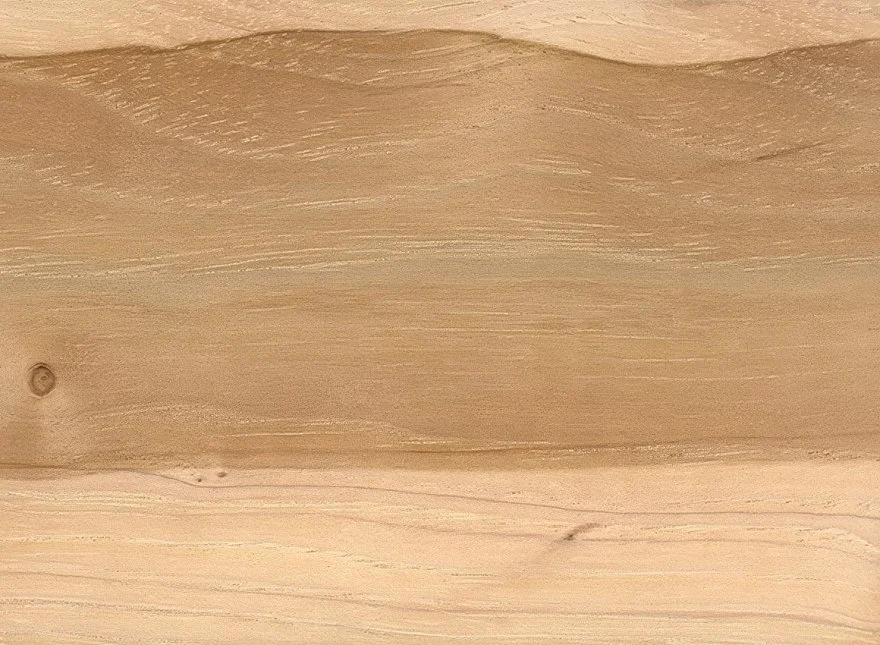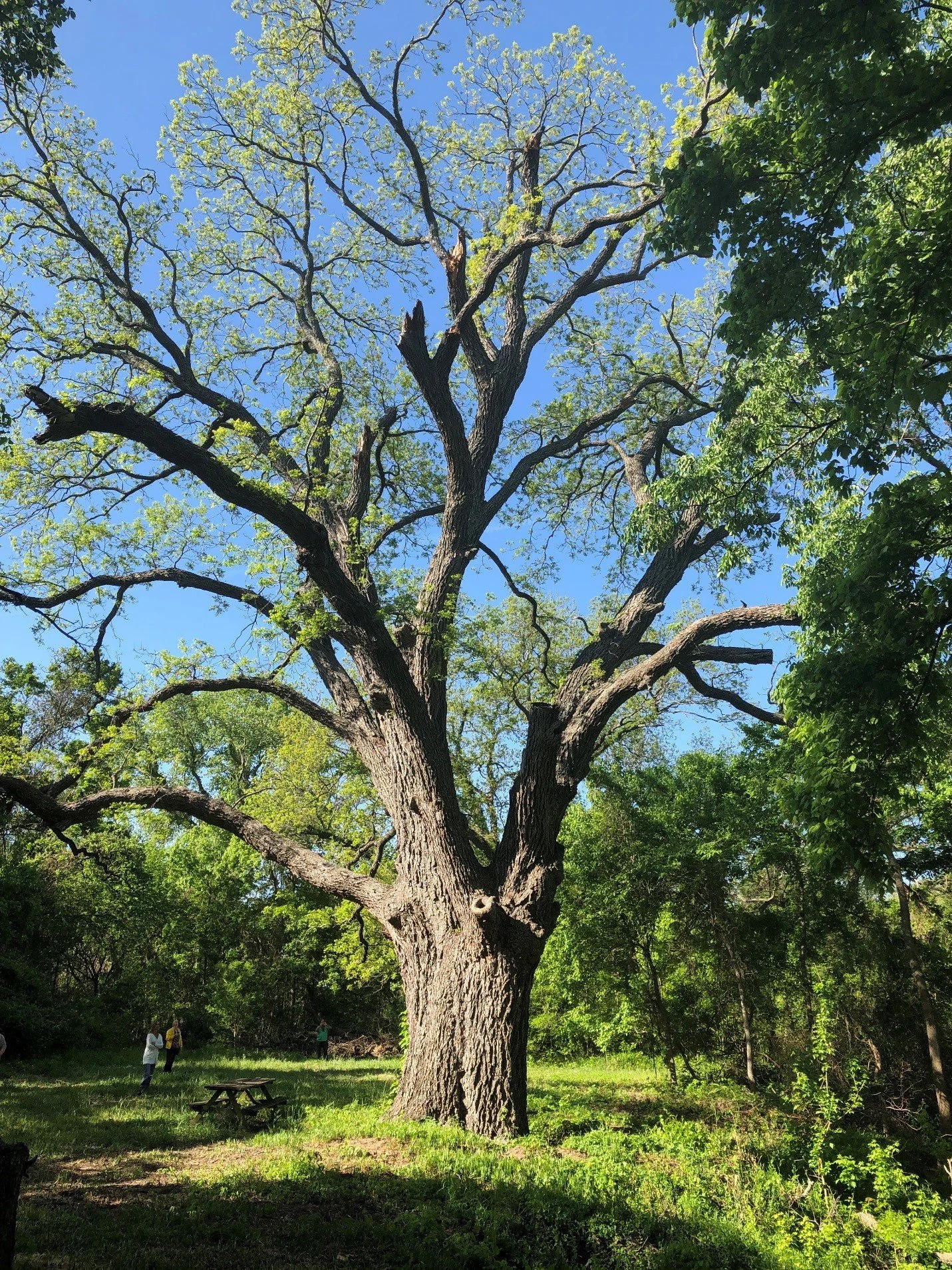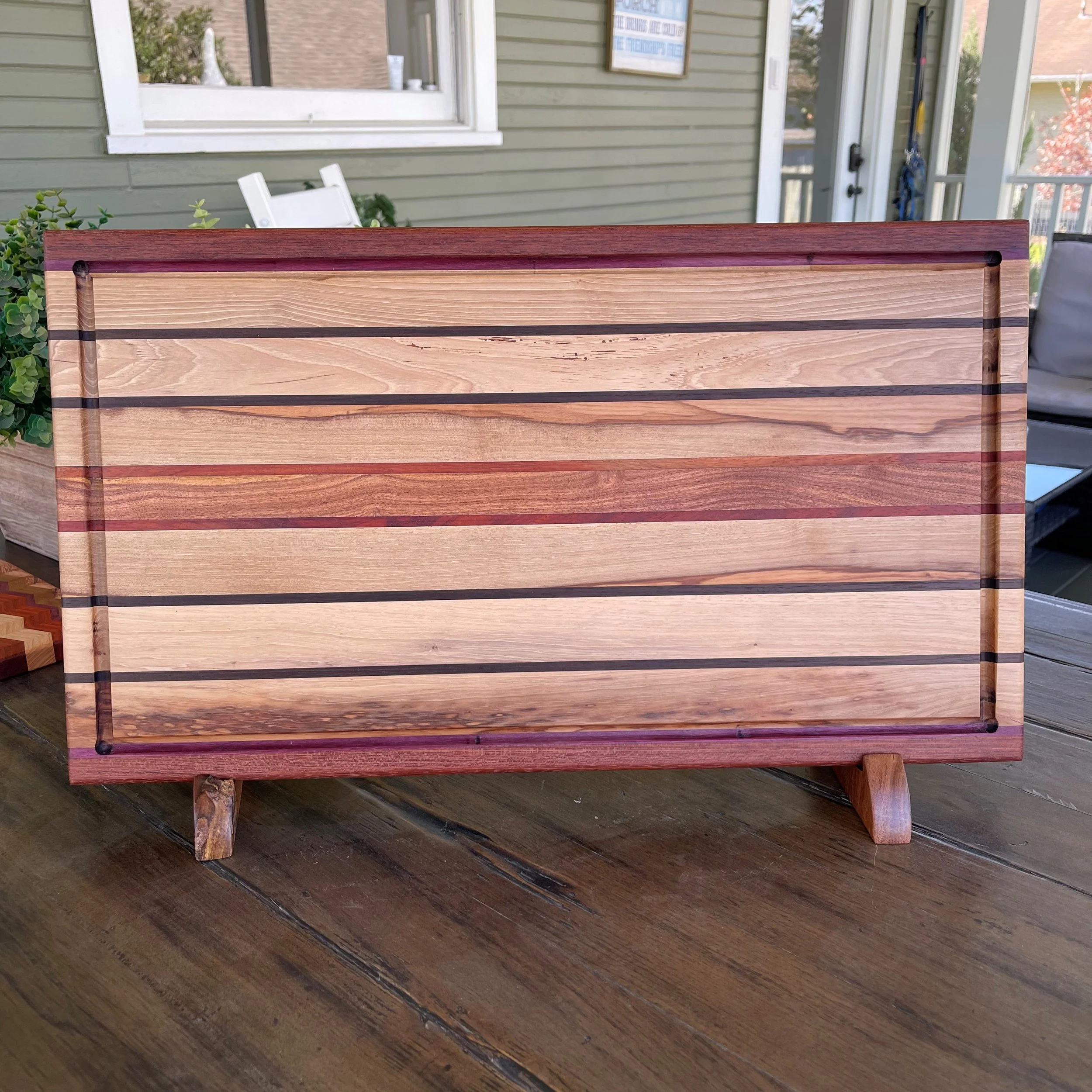
From Texas pecan to the Salt Shaker shop, its story carries forward.
Allen Pecan
The Story
When I met Mr. Allen, I discovered more than a fellow craftsman with stacks of lumber — I discovered a man who, like me, valued wood for the stories it carried. Parkinson’s had forced him out of the shop, but not before he saved what mattered most.
One of those saves was personal: a pecan tree from his own yard that had to be cut down. Rather than let it go to waste, he milled and stacked the boards, holding onto them with the quiet hope they would one day find purpose.
Bringing Allen Pecan into my shop meant carrying forward not just rescued wood, but a piece of his own place and story. These boards aren’t anonymous stock — they’re the remains of a tree that once shaded his home, now given a new life in mine.
About the Tree
Pecan (Carya illinoinensis) is native to the southern United States, especially right here in Texas. Known for its strong, spreading canopy and for producing rich, buttery nuts, the pecan is both a staple of the landscape and a symbol of heritage. Mature pecans often reach 70–100 feet tall (sometimes more) with wide crowns that provide generous shade. In 1919, the pecan was named the official state tree of Texas — a fitting title since these trees are woven into the daily lives of Texans.
The tree shown here is simply an example of the species — not the exact pecan tree from Mr. Allen’s yard that supplied the boards.
About the Wood
Pecan is a member of the hickory family, and its wood reflects that heritage — hard, dense, and durable, yet capable of fine detail when worked with patience. Its heartwood ranges from light brown to warm reddish tones, often streaked with character from mineral lines or age. The grain can be straight, but more often it carries a subtle waviness that adds visual interest.
For generations, pecan has been trusted in everything from furniture to tool handles, flooring, and butcher blocks. Its strength makes it reliable; its color and figure make it beautiful. In the shop, pecan asks for sharp tools and steady hands, rewarding the effort with a surface that holds both polish and presence.
To me, Allen Pecan isn’t just another hardwood. It’s a Texas wood with a Texas story — boards saved from a tree that once shaded Mr. Allen’s yard, now given the chance to live on in new form.
Why It Matters
Every board of Allen Pecan carries more than the grain of a Texas hardwood — it carries the story of a tree that once shaded Mr. Allen’s own yard. When the tree had to come down, he saved the lumber, milling and stacking the boards in his shop rather than letting them be lost. Years later, those boards found their way into my shop, where they continue his act of stewardship.
Pecan itself is a reminder of endurance. It grows tall and wide, offering shade and nourishment, and its wood is strong enough to serve for generations. Paired with Mr. Allen’s care in saving it, this pecan becomes more than material — it becomes a record of place, memory, and the craft of carrying good wood forward.
Made With Allen Pecan
This pecan board, accented with bold stripe work, has already found a home — but more pieces from Allen Pecan are always on the way.
This pecan cutting board, marked by warm tones and stripe accents, has already found a home — but new Allen Pecan pieces are always in the works.
Although every Allen Pecan piece shown here has already found a home, more pieces are on the way. This reclaimed pecan has a character all its own, and new bowls, boards, and toppers will be available soon. And if you have a specific idea in mind, get in touch and let’s talk about it.





